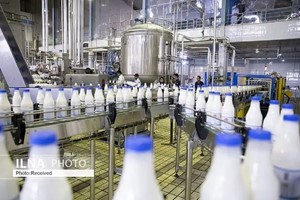South African food producers, among the biggest on the continent, are spending hundreds of millions of rand mitigating prolonged rolling power blackouts, water supply issues and crumbling infrastructure.
This investment, sometimes at the cost of essential capital expenditure, will eventually be passed onto consumers, making food prices higher for longer, food companies, economists and lobby groups told Reuters.
It comes at a time when South Africa is already struggling with acute unemployment, 14-year high interest rates and ballooning inflation and complicates efforts of the South African Reserve Bank (SARB) to ease interest rate hikes.
"We are very aware of the struggles that consumers are going through ... but inevitably some of it will be passed onto our consumers unfortunately," Chief Manufacturing Officer Derek McKernan of Tiger Brands (TBSJ.J), said.
The group, one of the biggest food producers in Africa, has allocated 120 million rand ($6.4 million) in capital expenditure for the second half of its financial year to mitigate the impact of power cuts, he said.
This includes additional back-up generators, fuel and water storage facilities, rooftop solar, mobile generators and water tanks to be operational from July.
It has even supplied a generator to one of the local municipalities, he added.
South Africa is facing daily power cuts - its worst in history - as creaking, old power plants breakdown, plunging Africa's most industrialised economy into prolonged blackouts.
This has impacted sectors across the board from telecoms to insurance.
For most part of this year the country was in the throes of "stage 6 loadshedding" with almost 10 hours of daily power cuts, forcing companies to scramble for alternative power and water sources.
South Africa implements power cuts in stages from one to eight with eight being the highest and translating to 16 hours of outages in a 32-hour cycle.
Premier Group (PMRJ.J), amongst the top five food producers, has invested in diesel generators and boreholes to isolate any impact of power cuts up to 16 hours a day, Kobus Gertenbach, its CEO, said.
It said last month it would take all necessary steps to protect margins.
Rival Libstar (LBRJ.J) told Reuters it has built storage capacity to ensure up to three days of production at most sites.
Poultry producer Astral (ARLJ.J), diversified food producers AVI (AVIJ.J) and RCL Foods (RCLJ.J) have indicated in their recent earnings statements the mitigating measures would eventually translate into higher food prices.
The listed food producers have collectively lost almost 15% in their market value since the beginning of the year.
Blackouts have eased in the past few weeks sparking hopes of better times ahead, but there is a palpable fear that as the southern hemisphere winter takes a deeper hold in July, power demand will far exceed generation.
By Tannur Anders and Anait Miridzhanian














